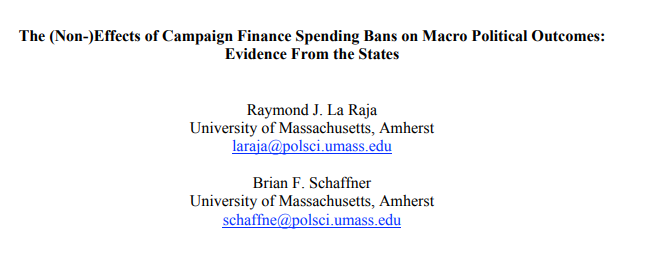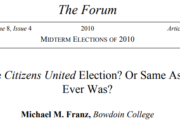In this study by University of Massachusetts, Amherst professors Raymond J. La Raja and Brian F. Schaffner, the authors seek to understand the effect of campaign finance laws on electoral and policy outcomes. Spurred by the 2010 Supreme Court decision, Citizens United v. FEC, which eliminated bans on corporate and union political spending, the study focuses on whether such bans generate consequences notably different from an electoral system that lacks such bans. In their study, La Raja and Schaffner observe three key outcomes: partisan control of government, incumbent reelection rates, and corporate tax burdens.
Using historical data on regulations in 49 American states between 1935 and 2009, the authors test alternative models for evaluating the impact of corporate and union spending bans put in place during this period. La Raja and Schaffner conclude that the results indicate that spending bans appear to have limited, if any, effect on the three aforementioned outcomes.














